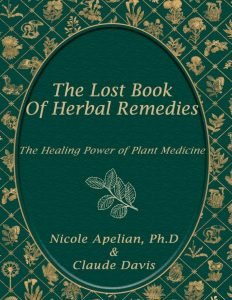Why Natural Remedies Are Better Than Medicine?
In today’s fast-paced world, where modern medicine seems to offer a solution for everything, it is easy to overlook the invaluable benefits of natural remedies. From soothing herbal teas to essential oils that rejuvenate the mind and body, the power of nature’s own medicine cabinet cannot be underestimated. In this article, we explore the reasons why natural remedies trump traditional medicine, offering you the key to a healthier and more holistic approach to wellness. So, put down your pill containers and embrace the wonders of nature’s healing touch.
Safety and Side Effects
Minimal side effects
One of the key advantages of natural remedies over conventional medicine is the minimal side effects they offer. Unlike pharmaceutical drugs, which often come with a laundry list of potential adverse reactions, natural remedies are generally well-tolerated by the body. This is mainly because they are derived from natural sources and typically have fewer artificial additives or chemicals. By opting for natural remedies, you can prioritize your well-being without having to worry about unwanted side effects.
Avoidance of harmful chemicals
Many conventional medications contain chemicals that might have unknown long-term effects on the body. In contrast, natural remedies often utilize organic ingredients such as herbs, plants, and essential oils. These substances have been used for centuries in traditional medicine and are generally safer for consumption. By choosing natural remedies, you can minimize your exposure to potentially harmful chemicals found in synthetic drugs.
Less risk of adverse reactions
While some individuals may experience adverse reactions to pharmaceutical drugs, natural remedies offer a gentler approach that reduces the risk of such reactions. Natural remedies work with your body’s natural processes, aiding in healing and supporting overall well-being without overwhelming your system with foreign substances. By taking advantage of nature’s healing properties, you can reduce the likelihood of experiencing negative reactions or complications.
Gentler on the body
Natural remedies typically have a holistic approach, treating the body as a whole rather than targeting specific symptoms. This gentler approach means that natural remedies are less likely to cause additional strain or stress on your body. Instead of focusing solely on alleviating symptoms, natural remedies aim to address the underlying causes of health issues and promote overall balance. By opting for these gentler alternatives, you can support your body’s natural healing abilities and experience a more sustainable form of wellness.

Holistic Approach
Addressing underlying causes
Unlike conventional medicine, which often focuses on managing symptoms, natural remedies take a holistic approach by addressing the underlying causes of health issues. Instead of merely masking symptoms with temporary solutions, natural remedies aim to identify and rectify the root causes of ailments. This approach not only provides relief but also helps attain long-term wellness by treating the source of the problem rather than just the symptoms.
Treating the whole person
Natural remedies recognize that a person’s well-being is influenced by various factors, including their mental, emotional, and spiritual health. By treating the whole person rather than just isolated symptoms, natural remedies support overall wellness and promote a balanced state of being. This comprehensive approach acknowledges the interconnectedness of the mind, body, and spirit, and strives to achieve harmony across all aspects of our well-being.
Focus on overall well-being
Natural remedies prioritize not only the treatment of specific ailments but also the enhancement of overall well-being. They aim to improve one’s quality of life by promoting vitality, longevity, and a general sense of wellness. Unlike conventional medicine, which often focuses solely on curing diseases, natural remedies adopt a preventative approach that seeks to maintain and optimize health in the long run.
Balancing mind, body, and spirit
Natural remedies emphasize the importance of achieving and maintaining balance among the mind, body, and spirit. By integrating practices such as meditation, yoga, and mindfulness, these remedies encourage a state of inner harmony and promote overall well-being. By aligning these three essential components of our being, natural remedies offer a comprehensive solution that goes beyond mere symptom relief.

Long-term Benefits
Supporting the body’s natural healing process
Natural remedies work in harmony with the body’s innate ability to heal itself. They often utilize ingredients with properties that support and enhance the body’s natural healing process. By nurturing and supporting the body’s own healing mechanisms, natural remedies can facilitate a faster recovery and promote long-term health.
Prevention of future health issues
One of the significant advantages of natural remedies is their focus on prevention. By addressing the root causes of health issues and promoting overall well-being, these remedies help prevent the occurrence of future health problems. They aim to strengthen the body’s immune system, optimize organ functions, and create an environment that is less conducive to disease. By adopting natural remedies, you can take proactive steps to safeguard your health and reduce the risk of future health issues.
Building a robust immune system
Natural remedies often include ingredients with immune-boosting properties. By incorporating these remedies into your daily routine, you can strengthen your immune system and improve your body’s ability to fight off infections and diseases. A robust immune system is essential for maintaining good health, and natural remedies offer a holistic approach to achieving and maintaining an optimal immune response.
Sustainable health improvements
Natural remedies prioritize sustainable and long-term health improvements rather than temporary relief. By addressing the underlying causes of health issues, natural remedies offer a more comprehensive and lasting solution. Rather than relying on quick fixes, these remedies encourage lifestyle changes and holistic approaches that promote ongoing well-being. By embracing natural remedies, you can set the foundation for a healthier and more sustainable future.
Affordability
Low cost or free remedies
Natural remedies often utilize ingredients that are readily available and affordable. Many remedies can be prepared using common household items, reducing the need for expensive medications or treatments. By tapping into the power of nature’s healing properties, you can access low-cost or even free remedies that provide relief and support without breaking the bank.
Less reliance on expensive medications
The rising cost of medication is a significant concern for many individuals. By opting for natural remedies, you can reduce your reliance on expensive pharmaceutical drugs and, in turn, lower your healthcare expenses. Natural remedies can offer effective alternatives to costly medications, providing relief and support without the financial burden.
Reducing healthcare expenses
Beyond the cost of medications, natural remedies can contribute to overall healthcare expense reduction. By adopting preventative measures and prioritizing holistic well-being, you can potentially reduce your need for medical interventions and the associated costs. Natural remedies encourage self-care and proactive health approaches, empowering individuals to take control of their own well-being and minimize medical expenses.
Accessible to a wider range of people
The affordability of natural remedies makes them accessible to a wider range of people, regardless of their financial circumstances. With ingredients often available and affordable, natural remedies can be embraced by individuals from all walks of life. This inclusivity ensures that everyone has the opportunity to explore and benefit from the healing powers of nature.
Less Dependency
Reduced reliance on pharmaceuticals
Natural remedies present an alternative to excessive reliance on pharmaceuticals. By incorporating natural remedies into your self-care routine, you can reduce your dependence on medications and explore more holistic, sustainable approaches to supporting your health. This reduced reliance on pharmaceuticals not only benefits your overall well-being but also brings relief from potential side effects and financial burdens associated with long-term medication use.
Avoiding addiction and tolerance issues
Pharmaceutical drugs, particularly those with pain-relieving properties, can lead to addiction and tolerance issues. Natural remedies, on the other hand, offer a safer alternative by minimizing the risk of addiction and unnecessary exposure to potentially harmful substances. By opting for natural remedies, you can take charge of your health without worrying about the addictive properties often associated with prescription medications.
Decreased need for regular doctor visits
Embracing natural remedies can help reduce the frequency of doctor visits for minor ailments and addressable health issues. By prioritizing proactive self-care and preventative measures, individuals may decrease their reliance on regular doctor visits, optimizing healthcare resources for those who truly require medical intervention. This increased self-sufficiency empowers individuals to take control of their health and reduces the burden on the healthcare system.
Taking control of one’s own health
By adopting natural remedies, individuals take control of their own health, becoming active participants in their wellness journey. Natural remedies empower individuals to explore personalized approaches that align with their unique health conditions and preferences. By embracing self-care and holistic practices, individuals can take charge of their well-being, leading to a greater sense of empowerment and self-sufficiency.
Minimal Environmental Impact
Use of natural and sustainable resources
Natural remedies often rely on ingredients derived from nature, such as herbs, plants, and minerals. By utilizing these natural resources, natural remedies minimize the consumption of synthetic ingredients that may be harmful to the environment. The use of sustainable resources ensures that the healing practices align with environmental conservation efforts, reducing the ecological impact.
Reduced pollution and waste
The production and disposal of pharmaceutical drugs contribute to pollution and waste. Natural remedies, in contrast, often have a smaller carbon footprint and generate less waste. By embracing natural remedies, individuals can play a part in reducing environmental pollution, contributing to a cleaner and more sustainable planet.
Preservation of biodiversity
Natural remedies inherently uphold the significance of biodiversity. The use of various herbs, plants, and minerals encourages the preservation and protection of flora and fauna. This approach fosters a deeper connection with nature and acknowledges the valuable contributions of diverse ecosystems to human well-being.
Eco-friendly production methods
Natural remedies are often created using eco-friendly production methods that minimize environmental impact. From sustainable farming practices to utilizing natural extraction techniques, the production of natural remedies prioritizes eco-consciousness. By supporting these practices, individuals contribute to the preservation of the environment and ensure the sustainability of these healing traditions.

Cultural Significance
Traditional knowledge and practices
Natural remedies are deeply rooted in traditional knowledge and practices that have been passed down through generations. They reflect the wisdom and experiences of our ancestors, offering healing solutions that have stood the test of time. By embracing natural remedies, individuals celebrate and honor diverse cultural traditions, recognizing the value of these ancient healing practices.
Preservation of cultural heritage
Embracing natural remedies contributes to the preservation of cultural heritage. These holistic healing practices are often deeply intertwined with specific cultures and communities, reflecting their unique identities and histories. By supporting and utilizing natural remedies, individuals play a role in preserving cultural traditions and showcasing the richness of cultural heritage.
Respecting indigenous healing traditions
Many natural remedies draw inspiration from indigenous healing traditions, honoring the wisdom and knowledge of indigenous communities. By incorporating these remedies into our lives, we recognize and pay respect to the indigenous knowledge that has been passed down through generations. This acknowledgement fosters cultural appreciation and builds bridges between diverse communities.
Connecting to one’s roots
Natural remedies provide an opportunity to connect with our roots and embrace the healing wisdom of our ancestors. By exploring these remedies passed down from generation to generation, individuals can strengthen their connection to their cultural heritage and embrace a more holistic approach to health. In doing so, individuals can experience a deeper sense of identity and belonging.
Personalization and Customization
Tailoring remedies to individual needs
One of the greatest advantages of natural remedies is their versatility and potential for customization. Natural remedies can be tailored to suit individual needs, allowing individuals to address their specific health concerns. By understanding your unique requirements, you can experiment with various natural remedies and personalize your approach to wellness.
Considering unique health conditions
Natural remedies have the flexibility to consider and accommodate unique health conditions. With a broad range of remedies available, individuals have the opportunity to explore options that align with their specific health challenges. By adopting personalized natural remedies, individuals can address their health conditions in a way that traditional medicine may not fully cater to.
Experimenting with different approaches
Natural remedies encourage individuals to experiment with different approaches to health and wellness. This exploratory mindset allows individuals to discover what works best for them, empowering them to make informed decisions about their own well-being. By embracing this sense of experimentation, individuals can find the natural remedies that resonate with them on a personal level.
Empowering individuals to take charge of their own health
By offering customization and personalization, natural remedies empower individuals to take charge of their own health. Rather than relying solely on doctors and medical professionals, individuals become active participants in their wellness journey. This sense of empowerment allows individuals to make informed decisions about their health, leading to a greater sense of control and ownership.
Availability and Accessibility
Easily obtainable ingredients
Natural remedies often utilize ingredients that are easily obtainable without much hassle. From spices and herbs available in local grocery stores to plants that can be grown in personal gardens, these remedies prioritize accessibility. This accessibility ensures that individuals can readily access the ingredients they need to prepare natural remedies without having to rely on rare or expensive resources.
Home remedies using common household items
Many natural remedies can be prepared using common household items, making them accessible to individuals without the need for specialized equipment or ingredients. By utilizing ingredients readily available at home, individuals can explore the world of natural remedies without any additional costs or tools. This accessibility enables a wider range of people to benefit from the healing power of nature.
No need for a prescription or pharmacy
Unlike pharmaceutical drugs that often require a prescription or a visit to the pharmacy, natural remedies can be utilized without any external intervention. Individuals can take charge of their health by utilizing natural remedies without the need for prescriptions or medical consultations. This accessibility allows individuals to address minor ailments and support their well-being at their own convenience.
Accessible to remote or underserved areas
Natural remedies have the potential to bridge the healthcare gap in remote or underserved areas. With their emphasis on simple ingredients and self-care practices, natural remedies can be easily adopted by individuals who may not have easy access to traditional healthcare resources. By offering accessible and holistic solutions, natural remedies can empower individuals in these areas to take control of their own health.

Resilient Health Practices
Building a strong foundation of health
Natural remedies prioritize building a strong foundation of health by promoting practices that contribute to overall wellness. From adopting healthy eating habits to incorporating exercise and stress management techniques, these remedies encourage individuals to engage in practices that support their well-being. By establishing a solid foundation of health, individuals can enhance their resilience and navigate life’s challenges more effectively.
Promoting self-care and prevention
Self-care and prevention are cornerstones of natural remedies. These remedies encourage individuals to take proactive steps to maintain their health, reducing the likelihood of future health issues. By focusing on prevention and engaging in self-care practices, individuals can minimize the need for medical interventions and support their overall well-being in the long run.
Learning lifelong wellness strategies
Natural remedies offer an opportunity to learn lifelong wellness strategies that prioritize long-term health. By embracing these practices, individuals gain knowledge and skills that can be applied throughout their lives. From nutritional choices to stress management techniques, natural remedies provide individuals with valuable tools for maintaining optimal well-being and resilience.
Promoting self-sufficiency and self-reliance
By emphasizing self-care and self-management, natural remedies promote self-sufficiency and self-reliance. Rather than relying solely on external healthcare providers, individuals are empowered to take an active role in their own health. This sense of self-reliance fosters independence and resilience, allowing individuals to navigate their health journey with confidence and autonomy.




